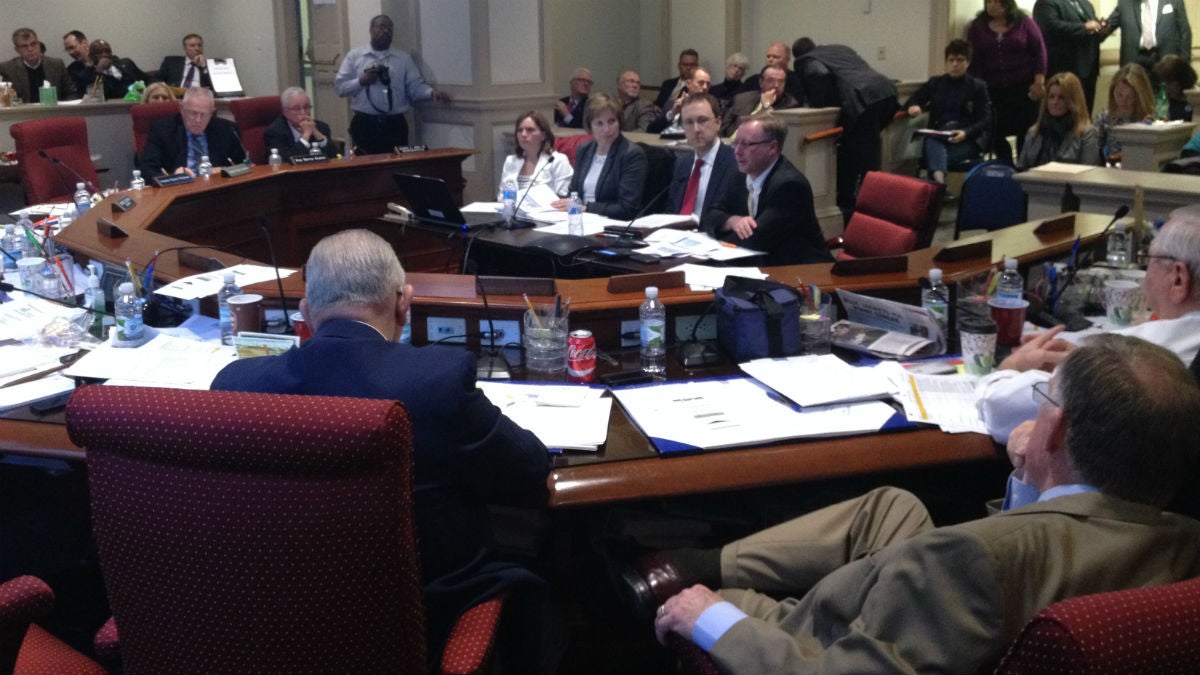Delaware lawmakers question success of Race to the Top

Governor Jack Markell wants $7.5 million to sustain education programs seeded by Race to the Top, a federal funding initiative that expires later this year.
Delaware legislators don’t sound eager to fork it over.
Markell requested the money as part of his proposed budget for Fiscal Year 2016. The state’s Department of Education went before the General Assembly’s Joint Finance Committee Wednesday to explain how it would use that money and why it’s needed.
A $119-million question
In return it received a deluge of comments—many critical—about how Delaware spent the $119 million it received through Race to the Top. Legislators suggested that the money didn’t produce significant enough academic gains and that too much of it contributed to bureaucratic bloat.
“The conception out there is that Race to the Top money did not reach the classroom, did not reach the teachers,” said Representative Joseph Miro, R-Pike Creek.
State officials stood by the ask, and defended the efficacy of Race to the Top. They pointed to a drop out rate that recently hit an all-time low, a significant uptick in high school students taking college courses, and streamlined data systems that they say will save the state money and help teachers make better decisions.
“We should all be incredibly proud,” said secretary of education Mark Murphy. “Students are learning and growing in Delaware.”
Murphy said the additional $7.5 million would go toward sustaining Race to the Top programs that had proven both effective and popular. They include supports for staff development, data collection, and teacher retention.
“Our teachers and leaders have told us this help is invaluable and they ask us to continue these programs,” Murphy said.
“Are we building a permanent bureaucracy?”
Among the $7.5 million, $6 million would go toward program costs and $1.5 million would go toward paying ten Department of Education employees who are currently paid through federal funds.
Legislators took special exception to the six-figure salaries earned by some of those ten employees.
“This is more than some of the superintendents get. This is more than some of the [cabinet members] get. It’s out of line,” said Miro.
Others wondered why the department was asking for any money.
“It seems to me that most races have a tape that racers get to cross, which represents the finish line. When is the finish line for Race to the Top,” asked Senator Harris McDowell, D-Wilmington North, the committee’s co-chair. “When do we finally finish this or are we building a permanent bureaucracy?”
Murphy said that original conversations around Race to the Top included a “sustainability plan” that was to cost the state $8.5 annually. “What you see here is a request for a million less,” Murphy said.
Details aside, lawmakers seemed eager to pass along constituent skepticism over the massive federal subsidy. Their comments indicated a bubbling discontent with the Markell administration’s education reforms.
“You…made a statement that teachers and educators are asking you to continue these programs,” said Representative James Johnson, D-New Castle. “That’s not the feedback we’re getting from teachers and educators.”
Five years later
Delaware’s Race to the Top saga dates to 2010, when it was among the first two winners of a federal competition that pits states against each other in a dash for dollars. Back then, U.S. Department of Education officials lauded Delaware’s ambitious reform agenda and its ability to solicit buy-in from school districts and unions.
The grant was expected to last four years, but Delaware received a one-year extension. That extension expires in the middle of 2015.
The money spawned various educational experiments, and the Department of Education has been busy trying to gauge which ones stuck. It’s also mentioning some that didn’t, including a STEM residency program which was cut and a teacher incentive system that may shrink in coming years.
On the larger question of whether Race to the Top worked, there’s still much to debate.
On Delaware’s Race to the Top application it listed a number of “ambitious” student achievement goals. They included benchmarks for graduation rate and performance on national standardized tests. The state is unlikely to meet those goals, and in some cases could fall well short. But it has made strides, Murphy said.
“A solid B”
The graduation rate, for instance, jumped nearly five percent between this year and last, even though it fell about two points shy of the stated Race to the Top goal.
“I think overall you could give us and give Delaware a solid B,” said Murphy. “The reason it’s not an A is because our student achievement isn’t where we want it to be.”
Murphy made those comments to the House Education Committee, which held a hearing on Race to the Top directly after the Joint Finance Committee’s.
In front of that body, Murphy and state officials heard many of the same complaints they heard from legislators in Joint Finance.
Representative Timothy Dukes, R-Millsboro, for instance, noted that half the federal dollars—roughly $59 million—went to the state Department of Education instead of local school districts.
“I don’t know if I’m annoyed or angry or aggravated,” Dukes said. “I’m just amazed that there’s so much money that was kept by DOE to run this. It’s alarming. It’s concerning.”
The other billion
So much attention went toward Race to the Top and the $7.5 million ask associated with it, that the state Department of Education spent little time discussing the majority of the $1.3 billion dollars it was allotted in the Governor’s proposed budget. If that number holds, the department would receive almost $47 million more from the state than it did in Fiscal Year 2015.
Some of that extra money is needed to accommodate Delaware’s growing public school population. Enrollment has trended up for the past decade, while private school enrollment has dropped sharply over the same period. Delaware added 1,601 students in 2014-15.
In all, state officials spent about six hours combined in front of the two legislative committees. When the probing ended, Representative Earl Jaques, D-Glasgow, the education committee chair, offered some sympathy.
“I know it’s been a long day,” Jaques said. “I hope you survived it.”
WHYY is your source for fact-based, in-depth journalism and information. As a nonprofit organization, we rely on financial support from readers like you. Please give today.





